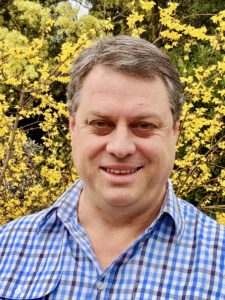 Lindsay Smith, PhD, RN, is a Lecturer in the Department of Nursing, School of Health Sciences at the University of Tasmania, Australia. He is applying his passion for understanding how family strengths can be applied in nursing care of Australian children, young people, and families through a recent high-level committee appointment.
Lindsay Smith, PhD, RN, is a Lecturer in the Department of Nursing, School of Health Sciences at the University of Tasmania, Australia. He is applying his passion for understanding how family strengths can be applied in nursing care of Australian children, young people, and families through a recent high-level committee appointment.
In 2017, the Tasmanian Minister for Human Services appointed Lindsay to the Cross Sectorial Consultative Committee which helped develop the Tasmanian Government’s Child & Youth Wellbeing Framework. This framework, released on June 6, 2018, intends to promote a contemporary understanding of child and youth wellbeing across Tasmanian Government agencies, non-government sector organizations, and the broader community. The framework will be implemented by governmental and non-governmental organizations in Tasmania and is a major early outcome of the Strong Families Safe Kids Initiative (SFSK). This initiative in Tasmania arose out of a comprehensive review and subsequent redesign of Child Protection Services there.
The SFSK Initiative is of particular importance for IFNA at this juncture given the focus of the 14th International Family Nursing Conference on social determinants of family health. The Child and Youth Wellbeing Framework underpins the work of the SFSK and contains six domains of wellbeing: being loved and safe; having material basics; being healthy; learning; participating; and having a sense of culture and identity. The six domains of wellbeing are inspired by The Nest, a national, evidence-based initiative on child and youth wellbeing developed by the Australian Research Alliance for Children and Youth (ARACY).
This important work complements Dr. Smith’s appointment to the ARACY four years ago. He remains a key member and contributor to the Alliance and has leveraged their evidence-based national plan for child and youth wellbeing, The Nest, in the development of the Tasmanian Child and Youth Wellbeing Framework. Progress on translating The Nest into practice has required focused effort since 2013. Progress is apparent with the adoption and implementation of the Child & Youth Wellbeing Framework in Tasmania.
Dr. Smith also links his policy work with his nurse educator role. Using the SFSK Initiative as a policy exemplar, he is implementing practice changes in the Bachelor of Nursing curriculum in “real time” as the government implementation unfolds. This exposes students to contemporary policy initiatives and ensures that their practice is aligned with the most up-to-date science. For example, the Department of Education trialled a Shared Wellbeing Assessment Tool developed by the SFSK initiative in early 2018, while at the same time the Bachelor of Nursing students at the University of Tasmania utilized this tool to help assess patient and family strengths and plan nursing care as part of a major assessment.
In addition to Dr. Smith’s important policy work, he is also deeply entrenched in an evaluation study on the school health nurse program in the State of Tasmania. Now that the first wave of data has been collected, Dr. Smith and his research team are busy with data analysis. Using the six domains of child and youth wellbeing to guide analysis of the data is revealing how school health nurses in Tasmania enhance wellbeing across the six domains.
For more information, contact IFNA member Lindsay Smith.
